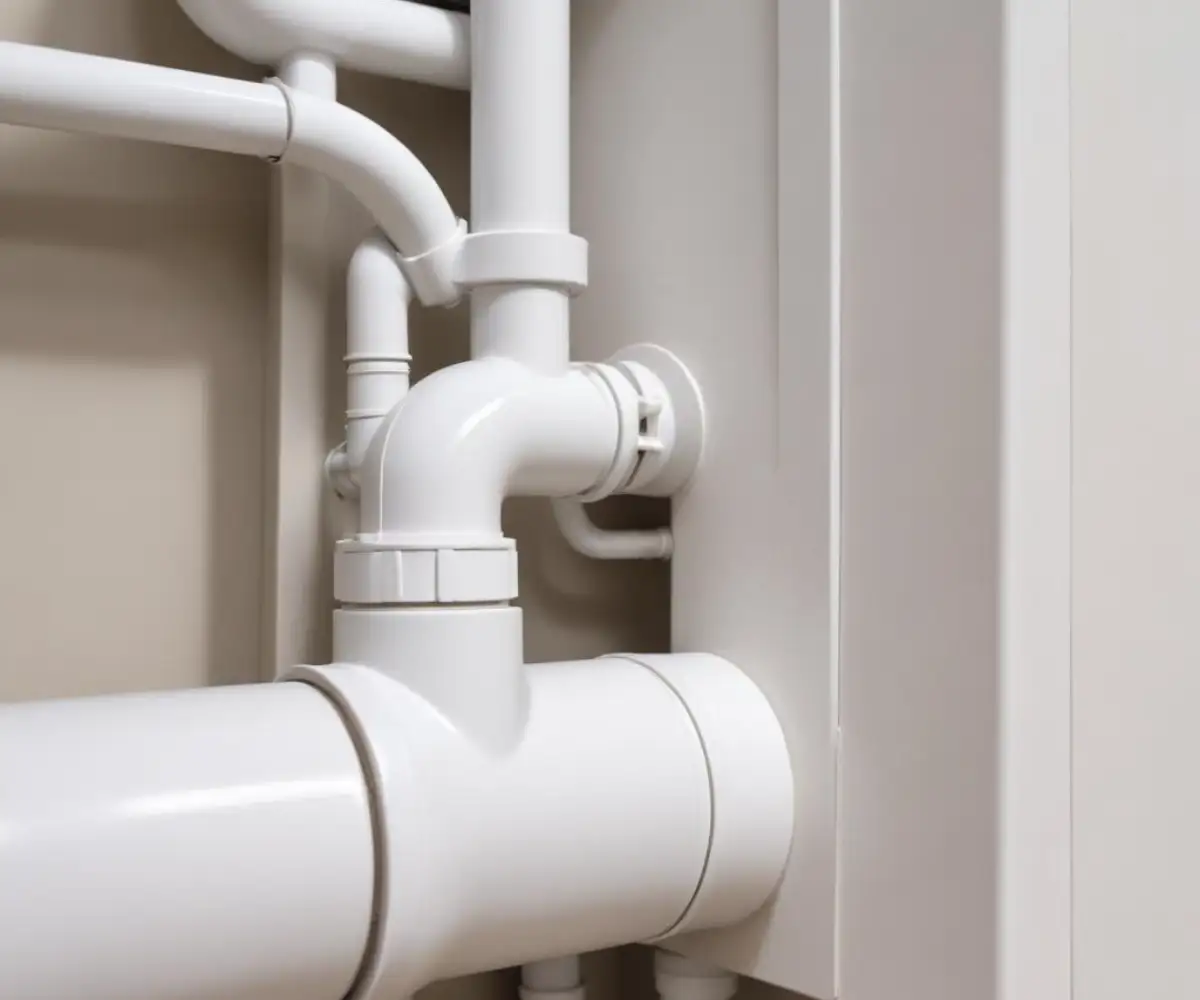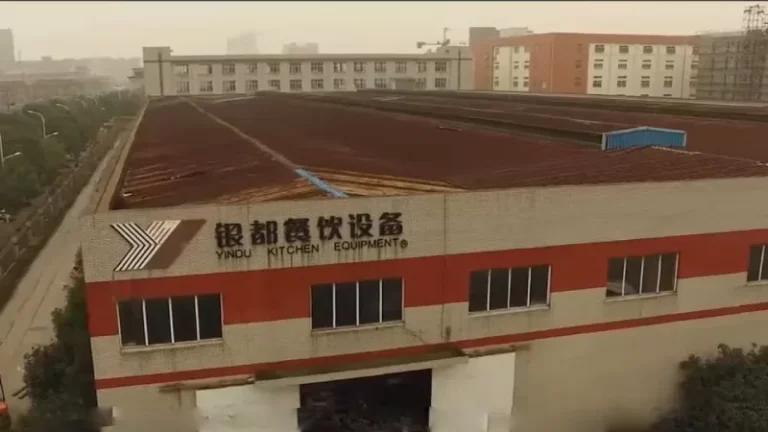AC Smells Like Farts? Here’s the #1 Cause & Your Action Plan
You turn on your air conditioner expecting a wave of cool, refreshing air, but instead, you’re hit with a smell that’s unmistakably foul. It’s a gut-wrenching odor, like rotten eggs, sulfur, or even sewage. If your first thought is, “My AC smells like farts,” you’re not alone, and more importantly, you’re not powerless. This disgusting problem is often a sign of a specific—and sometimes dangerous—issue within your home’s HVAC and plumbing systems.
Understanding the source of this odor is the first step toward reclaiming your home’s air quality and peace of mind. While it’s alarming, the good news is that most causes are identifiable and fixable. This guide will walk you through the primary culprits, from simple plumbing quirks to serious gas leaks, and provide a clear action plan to get your home smelling fresh again.
You'll Learn About
Why Your AC Emits a Fart or Rotten Egg Odor
That horrifying smell is almost always related to some form of sulfur gas. The most common is hydrogen sulfide, the same gas that gives rotten eggs their distinct stench. The real question is how this gas is getting into your ductwork and circulating through your home every time the AC kicks on.
Several scenarios can lead to this problem, but they generally fall into a few key categories. Some are relatively minor annoyances, while others pose significant health and safety risks. Let’s break down the most likely reasons for the offensive aroma.
The Primary Culprit: Sewer Gas Intrusions
The most frequent and alarming cause of a rotten egg or sewage smell from your AC vents is sewer gas backing up into your home. Your home’s plumbing system is designed with traps—U-shaped pipes—that hold water to create a barrier, preventing sewer gas from entering your living spaces. When one of these traps dries out, that barrier is gone, and smelly, potentially harmful gases can escape.
This often happens with a floor drain near your indoor HVAC unit (common in basements or utility closets) or with the AC’s own condensate drain line. If the AC’s condensate line is directly connected to a sewer pipe, it must have a P-trap. If that trap is dry, improperly installed, or clogged, it creates a direct pathway for sewer gas to be pulled into your HVAC system and distributed throughout your entire house. Methane is a component of sewer gas, and it is a dangerous substance.
Understanding the Dangers of Sewer Gas
It’s crucial to understand that sewer gas isn’t just unpleasant; it can be hazardous. Sewer gas is a complex mixture of gases, including hydrogen sulfide, ammonia, methane, and carbon dioxide. While low-level exposure might cause headaches, nausea, or dizziness, high concentrations of these gases can be toxic and even flammable.
Hydrogen sulfide is the primary source of the “rotten egg” smell and can irritate your eyes and respiratory system. Methane, while odorless, can displace oxygen in a room, leading to asphyxiation in extreme cases. Because of these risks, a persistent sewage smell from your vents should be treated as a serious issue that requires immediate investigation.
Could It Be a Natural Gas Leak?
While sewer gas is a top suspect, you must also rule out a natural gas leak. Utility companies add a chemical called mercaptan to natural gas to give it that distinct sulfur or rotten egg smell for safety reasons. Air conditioners don’t use natural gas, but if you have a gas furnace, it often shares the same ductwork.
If there’s a leak in the gas line near your furnace or ductwork, the smell can be circulated by the AC’s blower fan. This is an extremely dangerous situation that requires immediate action. If you suspect a natural gas leak, do not operate any electrical switches, leave your home immediately, and call your gas company or 911 from a safe distance.
Unraveling Other Nasty AC Smells
While sewer and natural gas are the prime suspects for a fart-like odor, other issues can cause different but equally unpleasant smells. Differentiating between them can help you narrow down the cause before you call a professional.
The Infamous “Dirty Sock Syndrome”
If the smell is more musty and reminiscent of a locker room or dirty laundry, you might be dealing with what HVAC professionals call “Dirty Sock Syndrome.” This occurs when bacteria and mold build up on your air conditioner’s evaporator coil. The coil gets cold and wet during operation, creating a perfect breeding ground for microbes.
When you turn the AC on, especially in humid climates, the air blowing over this grimy coil picks up the foul odor and distributes it. While not as immediately dangerous as a gas leak, the circulation of mold spores can trigger allergies and respiratory issues for sensitive individuals.
Decomposing Critters in the Ductwork
Unfortunately, small animals like rodents or birds can sometimes find their way into ductwork, get trapped, and die. The decomposition process releases a host of foul-smelling gases, including sulfur compounds, that create a potent, rancid odor. If the smell is intensely foul and seems to come from one specific area, this could be the unfortunate cause.
This is not just a smell issue; it’s a health hazard that requires professional removal and disinfection of the ductwork. Trying to handle this on your own can expose you to harmful bacteria and pathogens.
Your Step-by-Step Guide to Eliminating AC Odors
Now that you understand the potential causes, it’s time to take action. Follow these steps to diagnose and solve the problem. Remember to prioritize safety above all else.
Step 1: Troubleshoot the Odor (Safety First!)
Before you start touching your HVAC system, do a quick safety check. If the smell is very strong and resembles rotten eggs, immediately consider the possibility of a natural gas leak. If you have any suspicion, evacuate the house and call for professional help. Do not turn lights on or off, and do not unplug any appliances.
If you’ve ruled out a gas leak, try to pinpoint the smell. Does it come from all vents or just one? Is it constant, or does it only appear when the AC first kicks on? Answering these questions can provide valuable clues to the source of the problem.
Step 2: Inspect and Address the Condensate Drain Line
The AC condensate line is a common culprit for sewer gas smells. Your goal is to ensure its P-trap has water in it and that the line is clear of any blockages. Start by locating the indoor unit of your HVAC system (often in a basement, attic, or utility closet).
You should see a white PVC or copper pipe leading away from the unit. If this line connects to your home’s plumbing, it should have a U-shaped bend in it—that’s the P-trap. If there is no P-trap, or if it appears dry, this is likely your problem. Carefully pour a cup of water into the trap to create that necessary water barrier against sewer gas.

If the line is clogged, water can back up and create a breeding ground for smelly bacteria and mold. A clog can also prevent the trap from functioning correctly. You can often clear a minor clog by using a wet/dry vacuum on the end of the drain line outside your house to suck out the blockage.
Step 3: Check the Simple Things: Air Filters and Drain Pans
A severely clogged air filter can contribute to all sorts of HVAC problems, including bad smells. If the filter is damp, it can become a breeding ground for mold and mildew. Check and replace your air filter if it’s dirty—it’s a simple, inexpensive step that should be part of your regular home maintenance.
While you’re at the indoor unit, inspect the drain pan located beneath the evaporator coils. If your condensate line is clogged, this pan can fill with stagnant water, leading to musty odors. If you see standing water, your drain line is definitely blocked and needs to be cleared immediately.
A Quick-Reference Guide to AC Smells
Sometimes the specific type of smell can be the biggest clue. Use this table to quickly identify potential causes and determine your next steps.
| Smell Description | Potential Cause | Action to Take |
|---|---|---|
| Farts / Rotten Eggs / Sulfur | Sewer gas leak (dry P-trap) or a natural gas leak. | HIGH PRIORITY: Rule out natural gas leak first. Check condensate P-trap. Call a plumber or HVAC pro. |
| Musty / Dirty Socks | Mold or bacteria on evaporator coils (“Dirty Sock Syndrome”). | Change air filter. Schedule a professional HVAC cleaning. |
| Rancid / Decaying | A dead animal in the ductwork. | Call a pest control or HVAC professional for removal and sanitation. |
| Burning / Gunpowder | Electrical issue (overheating motor, faulty wiring). | IMMEDIATE ACTION: Turn off the system at the breaker. Call an HVAC technician immediately. |
| Chemical / Sweet | Refrigerant leak. | Turn off the AC. Ventilate the area and call an HVAC professional. Refrigerant is hazardous. |
How to Prevent Your AC from Smelling Bad Again
Once you’ve banished the foul odor, you’ll want to make sure it never returns. Proactive maintenance is the key to keeping your HVAC system running efficiently and smelling fresh.
Schedule Regular Professional HVAC Maintenance
The single most effective thing you can do is to have your HVAC system professionally inspected and serviced annually. A technician will clean the coils, check the drain lines, inspect electrical components, and ensure the entire system is in safe working order. This not only prevents odors but also improves efficiency and extends the life of your unit.
Understanding the value of preventative maintenance can save you from costly emergencies down the road. It’s much like understanding the basement HVAC cost before an installation; planning ahead prevents expensive surprises.
Be Diligent with DIY Maintenance
In between professional tune-ups, there are several things you can do yourself. Change your air filter every 1-3 months, without exception. Periodically, pour a cup of distilled vinegar down the condensate drain line access port to kill any budding algae or bacteria and help keep it clear.
Maintaining the environment around your HVAC unit is also important. Just as you would clean a basement apartment to prevent general odors, keeping the utility area free of dust and debris reduces the contaminants that can be pulled into your system.
Ensure Proper Home Sealing and Pest Control
To prevent critters from getting into your ductwork, inspect the exterior of your home for any potential entry points. Seal any cracks or holes in your foundation and ensure vent covers are secure. Overall home integrity is your first line of defense; for instance, a project like a sunroom wall panel replacement isn’t just about aesthetics, it’s about keeping the building envelope sealed and secure from pests.
When to Call a Professional HVAC Technician
While some causes of a smelly AC can be addressed with simple DIY fixes, many require the expertise of a trained professional. Do not hesitate to call for help if you encounter any of the following situations:
- You suspect a natural gas leak.
- The smell persists after you’ve cleaned the P-trap and changed the filter.
- You see signs of a significant mold problem.
- You hear unusual noises or the system is not cooling properly.
- You suspect an electrical issue (burning smell).
A qualified HVAC technician or plumber has the tools and knowledge to safely diagnose the root cause of the problem, whether it’s a cracked sewer line, a faulty component, or a deeply contaminated system. Your safety and the proper functioning of your home’s essential systems are worth the professional service call. Don’t let a bad smell ruin your comfort or compromise your health.


![Polarity Reversed on Furnace [Symptoms, Causes, Fixes]](https://fixitinthehome.com/wp-content/uploads/2023/02/Polarity-Reversed-on-Furnace-768x432.webp)